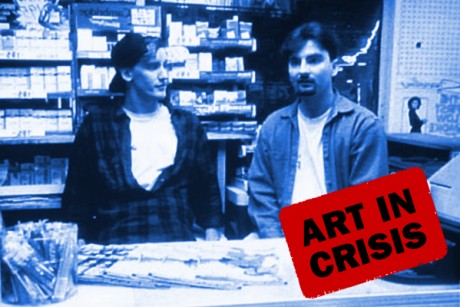And back here in the U.S., it's fitting to read on the day that the country's second largest bookstore chain officially shuts things down that some people, namely Scott Timberg at Salon, think that we're losing something important with all the clerks who have lost their jobs thanks to the Internet.
From the article:
“I think of bookstore jobs as my university,” says Jonathan Lethem. (His new nonfiction collection, The Ecstasy of Influence, emphasizes the catholic nature of his taste and his provocative way of discussing work he loves – both qualities embodied by the best store clerks.) “The physical trade of books was a hallowed way to become a writer in the pre-MFA era. It was the only work I wanted to do, and the only work I was qualified to do.”
Lethem, of course, is not alone: Writer Mary Gaitskill and Decemberists singer Colin Meloy – now an author himself — started out in bookstores; punk heroine Patti Smith worked at New York’s sprawling the Strand. My Morning Jacket’s Jim James and R.E.M.’s Peter Buck clerked at record stores in Louisville, Ky., and Athens, Ga., respectively. Quentin Tarantino – who could almost be a character from Kevin Smith’s “Clerks” – developed his distinctive blend of junk culture, Asian film and cinephile obsession while laboring at a video store in Manhattan Beach: Video Archives was his film school.
These places speak to people outside urban bohemians. Poet and critic Dana Gioia, the former chairman of the National Endowment for the Arts, grew up in the ’50s, in the rough Southern California town of Hawthorne, with parents who lacked college degrees. “When I was a little kid, there was a used bookstore every 10 blocks,” he recalls. “There would be some grumpy old man running it: If you came in a couple of times he’d comment on your books — not in a charming way that you’d put in a movie. But it showed you that other people read and had opinions; it was a socialization. So much of culture is chance encounters between human beings.”

No comments:
Post a Comment